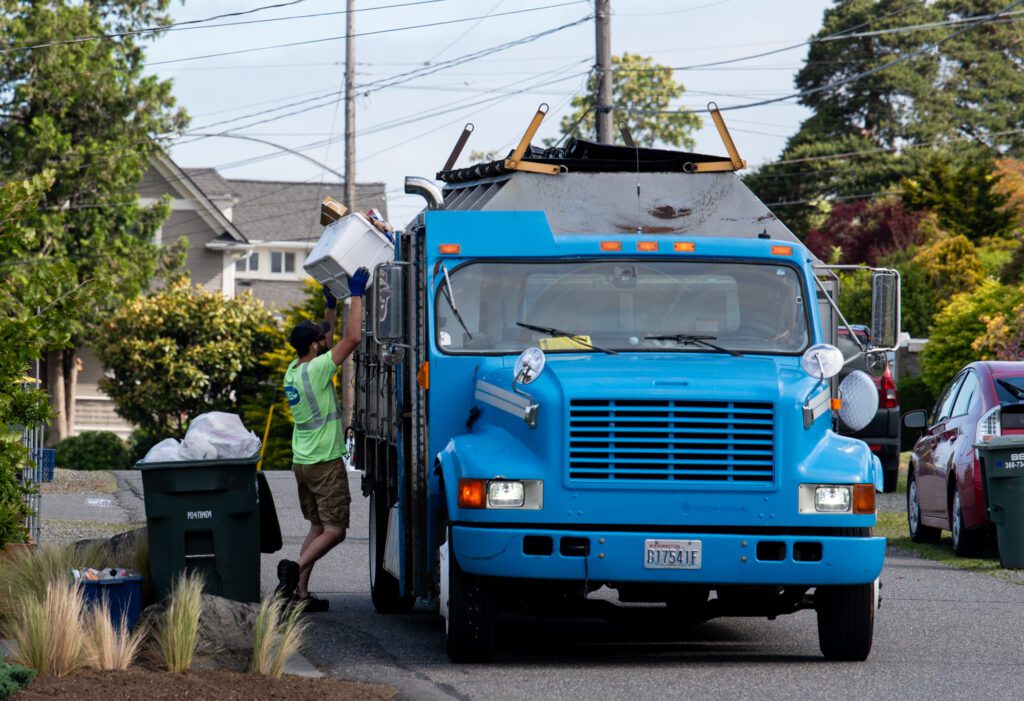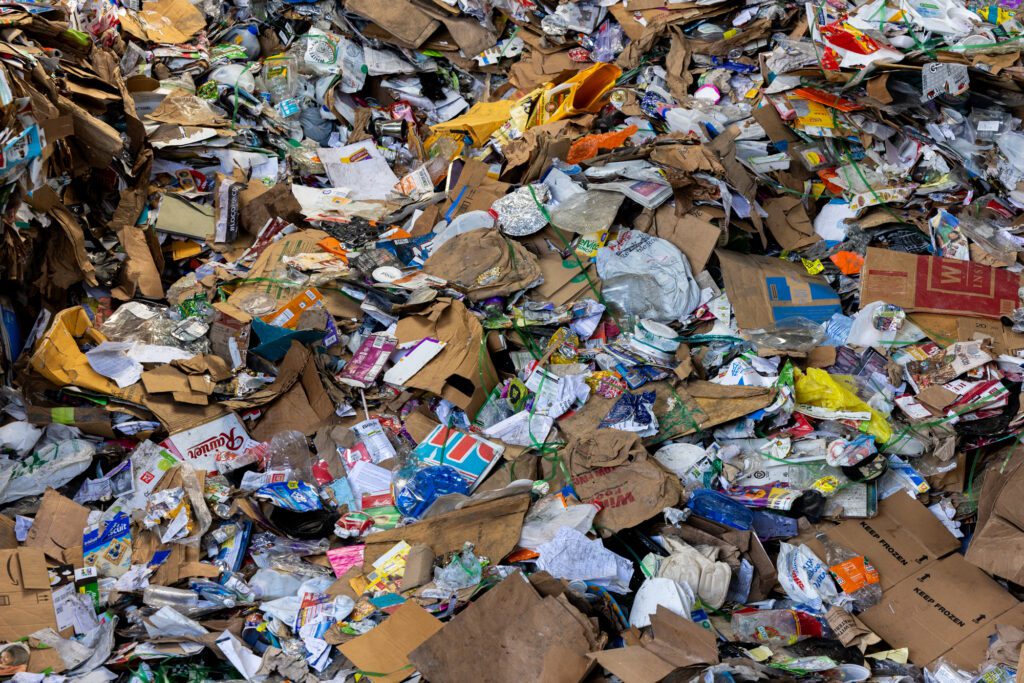This multi-part series follows waste from curbside to commodity market.
Written by Julia Tellman // Photographed by Finn Wendt

City, county curbside recycling changing to single rolling bin
Organic waste collection mandated in Bellingham starting 2025
Part one explores a major shift in how recycling is collected in much of Whatcom County. Local governments have approved “single-stream” recycling, which is supposed to make collection more efficient for the hauler and more convenient for the customer, although contamination rates may increase.

What makes Whatcom’s trash and recycling system unusual?
No landfills, and the only WA county with a privatized ecosystem
Part two visits a few privately owned, family-operated transfer stations in Whatcom County. With no open landfills in the county, these stations serve as the central location where many small loads of trash and recycling are consolidated, loaded and transported elsewhere.

Intelligent robotic sorting cuts landfill waste, risk to human workers
Even in 'facility of the future,' plastic bags are still a problem
Part three visits an “MRF of the future,” a material recovery facility in King County where some of Whatcom County’s recycling goes to be sorted, baled and sent off to buyers around the region. Sophisticated robotic sorting at the facility leads to fewer loads being trucked to the landfill.

Tons of construction and demolition waste in Bellingham area have potential for reuse
Wood, construction debris make up almost 25% of waste stream in Washington
Debris from construction and demolition is some of the easiest material to recycle or reuse, which is no surprise for the RE Store salvage crew, featured in part four. Instead of sending one worker to a job site to “crunch” a structure with an excavator, these pros systematically dismantle a building from the inside out, removing fixtures, cabinets, trim and flooring, before taking on the structural elements.

Mandatory food and yard waste collection comes to Bellingham in 2025
Customer gripes of cost, odor, inconvenience outweighed by environmental impact, proponents say
Part five explores the logistics and rationale behind the City of Bellingham’s new rule that mandates curbside organics collection for all single-family and small multi-family residential units beginning in 2025. Eventually many cities and counties in the state will require food and yard waste collection, but for now, Bellingham is ahead of the curve.
